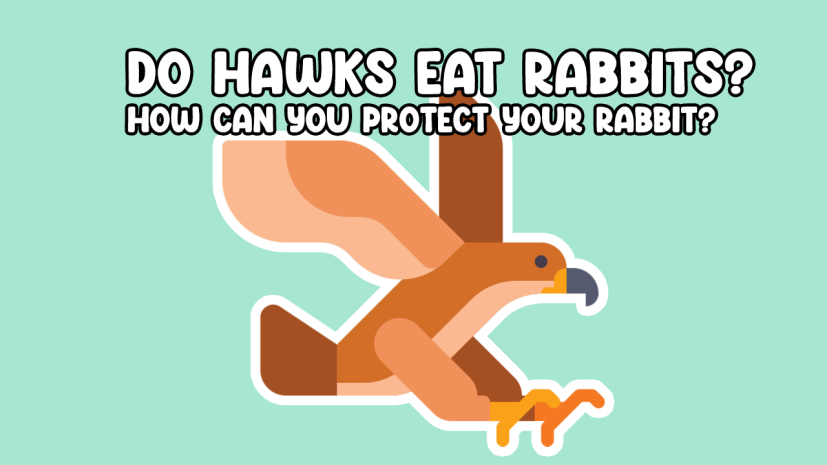
Hawks are known for their diverse diet, but one question often arises: Do hawks eat rabbits? Join us as we explore the answer to this question and gain a deeper understanding of the complexities of hawk predation.
This post is entirely for educational purposes. If you find this topic triggering, we highly recommend skipping this post. However, we do go into detail on how to keep your outdoor rabbit protected.
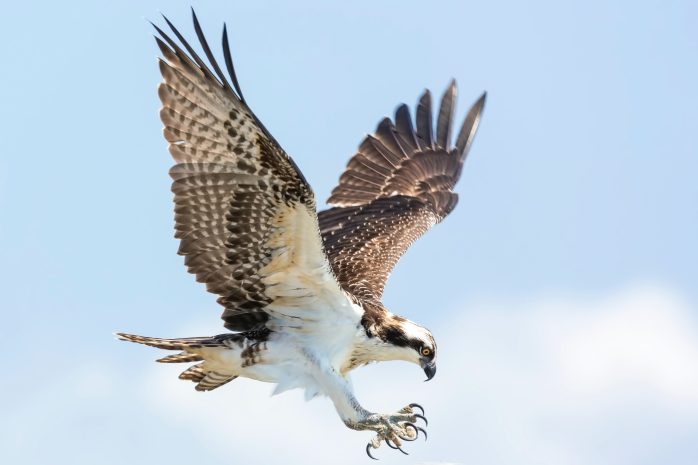
Hawks are majestic birds of prey that exhibit exceptional hunting skills. With their sharp talons and keen eyesight, they have evolved to be efficient predators. The world is home to various hawk species, each employing unique hunting strategies to capture prey. Some common species include the Red-tailed Hawk, Cooper’s Hawk, and the Northern Harrier.
Prey selection is a critical aspect of a hawk’s survival. They carefully choose their targets based on various factors such as size, agility, and availability. While hawks primarily feed on small mammals, birds, and reptiles, their hunting techniques may vary depending on the specific species and the environment they inhabit.
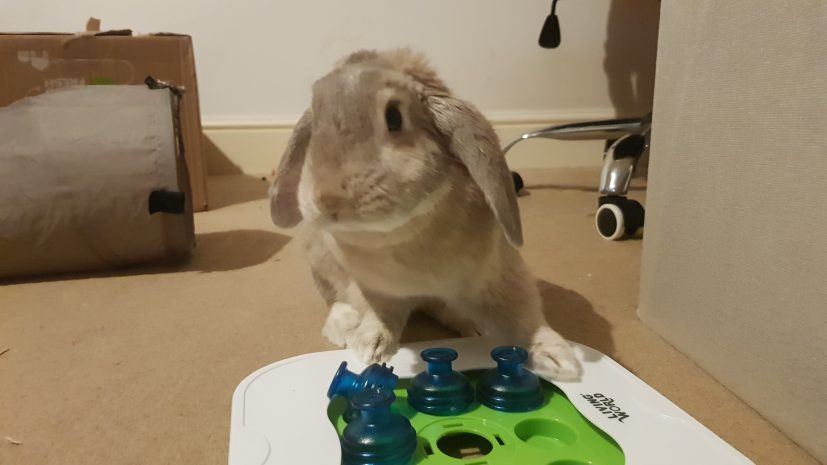
Rabbits are ubiquitous creatures known for their reproductive capabilities and quick agility. Various predators, including hawks, often target these small mammals. Understanding rabbits’ physical characteristics and behavior can shed light on why they are an attractive food source for hawks.
Rabbits possess excellent running and jumping abilities, enabling them to evade predators swiftly. Their large ears provide exceptional hearing, giving them an advantage in detecting potential threats. Additionally, their reproductive rate ensures a steady population, making them an appealing prey choice for hawks.
The interaction between hawks and rabbits is a fascinating topic to explore. Hawks have developed remarkable hunting techniques to capture rabbits effectively. By observing their prey from perches or soaring high in the sky, hawks patiently wait for the opportune moment to strike.
Once a hawk spots a rabbit, it swoops with astonishing speed and precision. Its sharp talons and powerful beak are its primary weapons. The hawk’s talons grasp the rabbit, while its beak delivers a swift and fatal blow. This swift and lethal attack ensures the hawk’s success in securing its meal.
Many anecdotes and observations provide valuable insights into the relationship between hawks and rabbits. People have witnessed hawks soaring through the sky, clutching rabbits in their talons. These interactions highlight the incredible hunting prowess of hawks and the vulnerability of rabbits in the face of their predators.
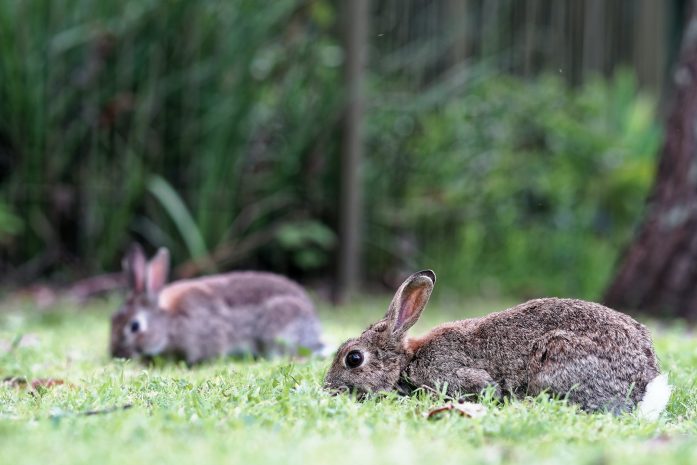
Hawk predation plays a significant role in regulating rabbit populations. As natural predators, hawks help maintain a balance in the ecosystem by controlling the number of rabbits. When rabbit populations grow unchecked, it can lead to overgrazing and habitat destruction.
Hawks act as a natural check, ensuring the sustainability of both rabbit populations and their surrounding habitats.
However, it’s essential to acknowledge that hawk predation is just one-factor influencing rabbit populations. Other factors, such as disease outbreaks, resource competition, and human activities, can also impact rabbit numbers. The collective interplay of these factors shapes the overall dynamics of rabbit populations.
The interaction between hawks and rabbits can vary significantly across different environments. Hawks have adapted to thrive in diverse habitats, such as forests, grasslands, and urban areas. These varying landscapes offer distinct challenges and opportunities for both hawks and rabbits.
In forested areas, hawks may utilize their agility to navigate through dense foliage and surprise rabbits. Grasslands provide open spaces where hawks can employ their speed and aerial prowess to capture rabbits.
Urban environments, on the other hand, present a unique set of challenges due to human infrastructure. Nevertheless, hawks have shown adaptability and have been observed hunting rabbits even in urban settings.
If you have an outdoor domestic rabbit, it’s important to take precautions to protect them from potential predators like hawks. Here are some measures you can implement to ensure the safety of your rabbit:
Having a tar pool can make for an effective roof if you have an outdoor rabbit run. You should check your rabbit regularly to avoid overheating during the summer.
By implementing these protective measures, you can minimize the risk of hawk predation on your outdoor domestic rabbit and ensure their safety.
Humans can promote coexistence with hawks by implementing strategies such as habitat preservation, creating wildlife-friendly spaces, and providing alternative food sources for hawks. Educating the public about maintaining a balanced ecosystem can contribute to peaceful coexistence.
Yes, rabbits are indeed a significant part of a hawk’s diet. Hawks are opportunistic predators and will prey on rabbits when given the chance. However, it’s important to note that their diet also includes a variety of other small mammals, birds, and reptiles.
Hawks do not have a strong preference for specific rabbit species. They target various rabbit species based on availability and suitability. The abundance of a particular rabbit species in a specific habitat may influence a hawk’s prey choice.
No, hawks do not hunt rabbits in packs. Hawks are solitary hunters who use their skills and tactics to capture prey. However, it’s common to witness multiple hawks hunting in the same area, taking advantage of an abundant rabbit population.
While it is rare, hawks can threaten outdoor domestic rabbits. Implementing protective measures, such as secure enclosures and supervised outdoor time, can help mitigate the risk and ensure the safety of your rabbit.
Rabbits have evolved exceptional awareness of their surroundings, including the presence of potential predators like hawks. They rely on their acute senses to detect danger and respond accordingly by fleeing or seeking shelter. However, hawks can see significantly further than a rabbit from a much higher advantage point, and this makes them exceptional hunters.
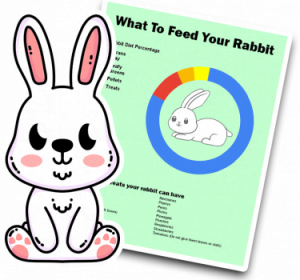
By entering your email address you agree to receive emails from Cottontailclub. We'll respect your privacy and you can unsubscribe at any time.